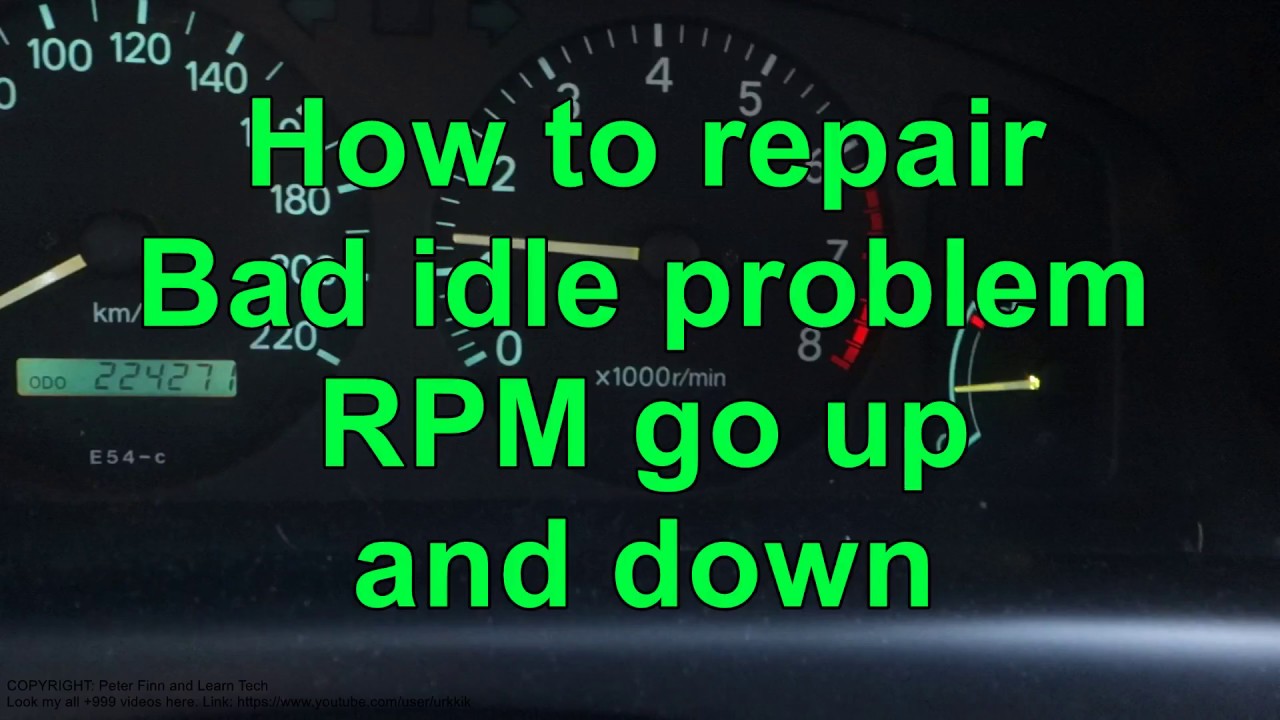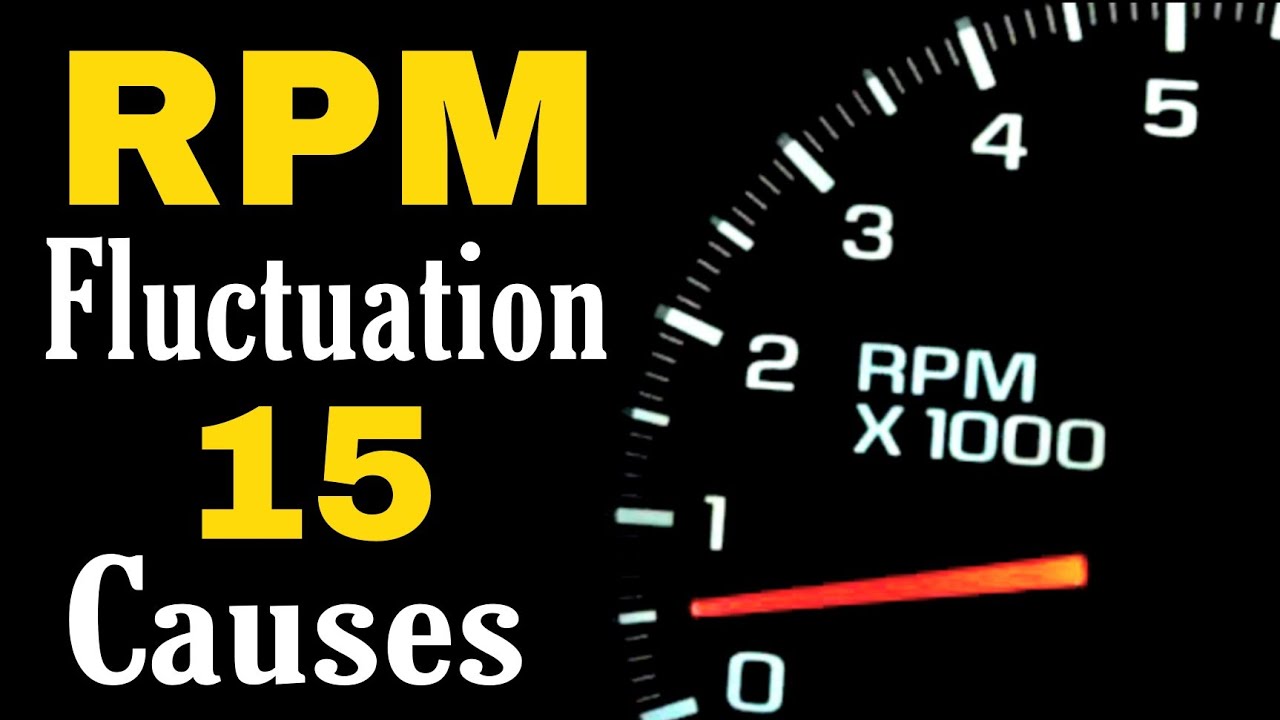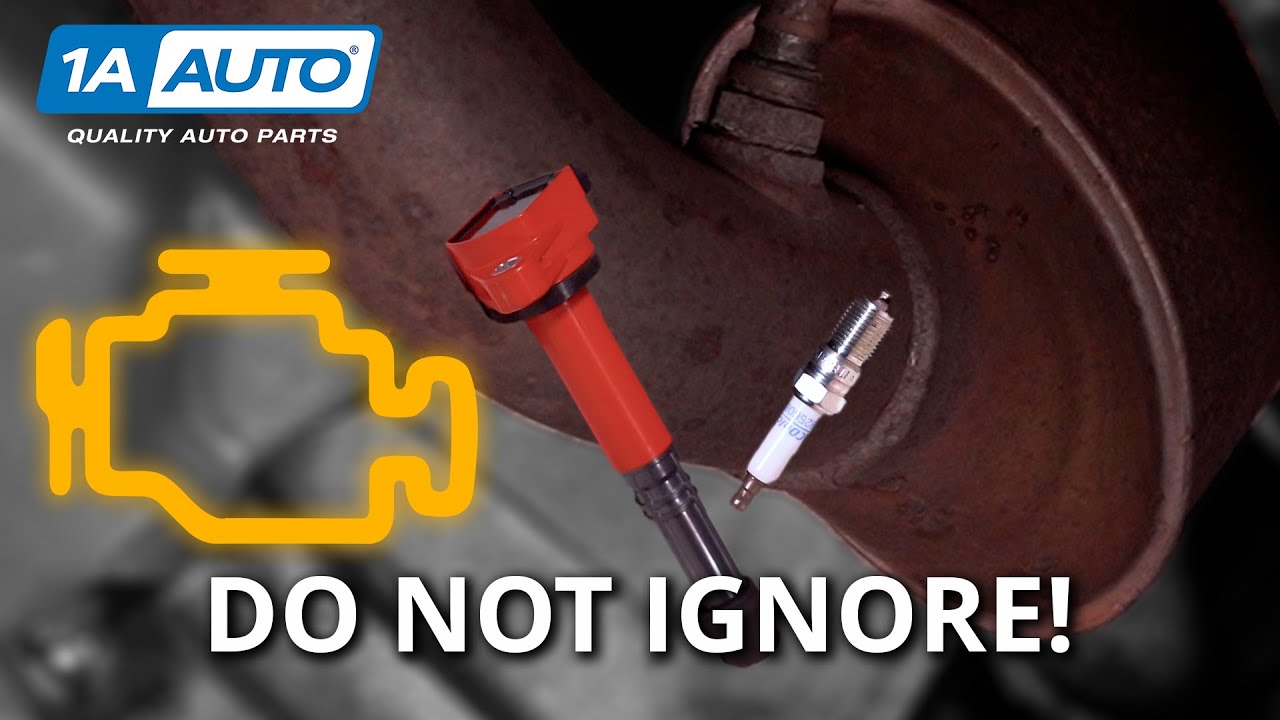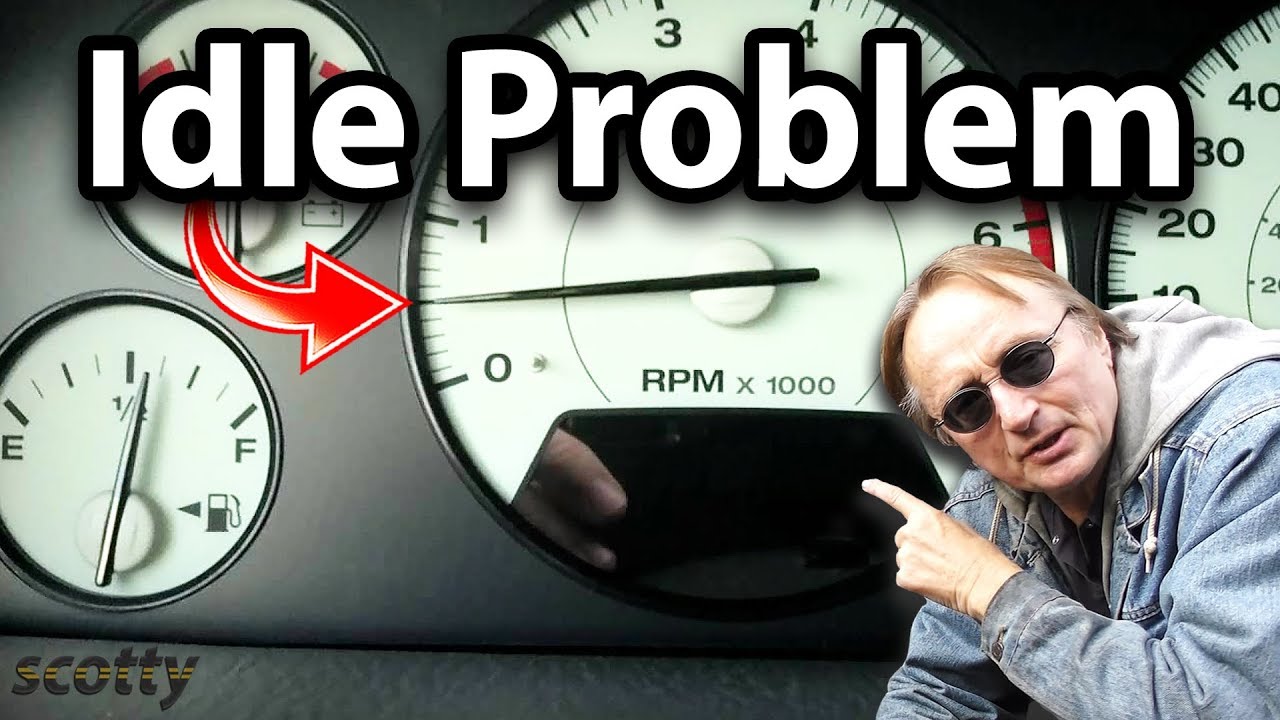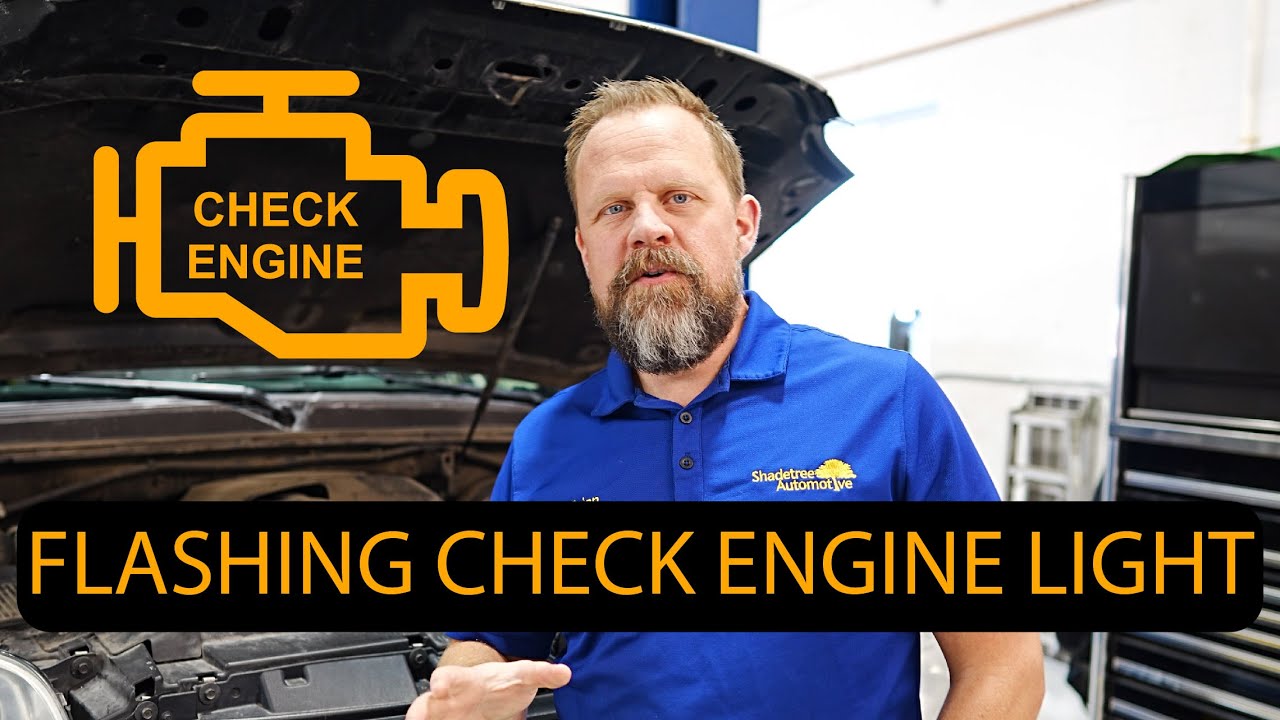Ever noticed your car’s RPM needle bouncing up and down while parked? This mysterious fluctuation isn’t just a quirky behavior of your vehicle; it’s a sign that something needs your attention. Let’s unravel the enigma behind these erratic RPM shifts and steer you towards smooth idling.
In this article, we will explore the potential causes of RPM fluctuations and provide solutions to help you address them effectively.
What is RPM, and Why Does It Matter?
RPM stands for revolutions per minute and measures how many times the engine crankshaft completes a full rotation in a minute. In other words, it measures how fast the engine is spinning.
RPM is an essential metric for any vehicle, providing information on the engine’s performance, efficiency, and overall health. RPM can indicate if the engine is idling correctly, accelerating smoothly, or experiencing issues that need attention. It’s also crucial for determining the proper gear to use, as higher RPMs indicate a need for a higher gear, while lower RPMs suggest a lower gear.
In short, RPM matters because it gives drivers and mechanics a vital insight into the engine’s health and performance, which can help diagnose and solve any issues before they become more severe.
Why Does My RPM Go Up And Down While Parked?
Your RPM may go up and down while parked due to several potential underlying causes, including vacuum leaks, EGR system malfunctions, malfunctioning oxygen sensors, dirty fuel injectors, fuel pump malfunction, faulty spark plugs, a faulty mass airflow sensor, or a faulty throttle position sensor. These issues can cause an air/fuel mixture imbalance, resulting in RPM fluctuations.
#1 Vacuum leaks
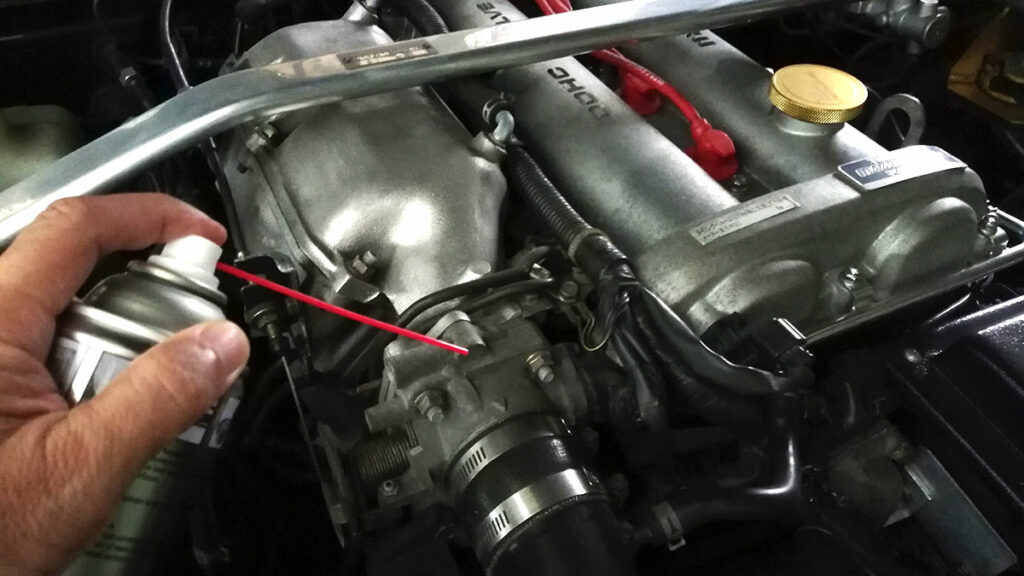
Vacuum leaks occur when air enters the engine through cracks or gaps in the vacuum lines or intake manifold. This additional air causes an imbalance in the air/fuel mixture, leading to RPM fluctuations.
Common symptoms of vacuum leaks include hissing sounds from the engine, poor acceleration, and engine misfires. To diagnose a vacuum leak, a professional mechanic will use a smoke machine to detect the source of the leak and replace or repair the affected component.
#2 EGR system malfunctions
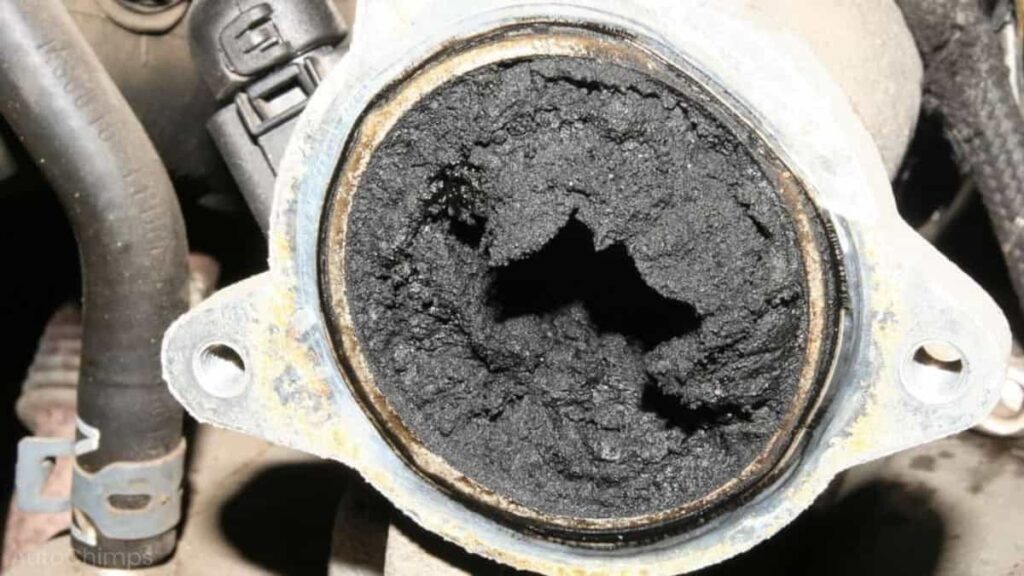
The EGR (Exhaust Gas Recirculation) system reduces nitrogen oxide emissions by recirculating some of the engine’s exhaust gases into the intake manifold. If the EGR system malfunctions, it can cause RPM fluctuations, poor acceleration, and engine misfires. Common causes of EGR system malfunctions include clogged EGR valves, faulty EGR solenoids, and broken vacuum lines. A professional mechanic can diagnose and repair EGR system issues.
#3 Malfunctioning oxygen sensors
Oxygen sensors measure the amount of oxygen in the exhaust gases and provide feedback to the engine control module to adjust the air/fuel mixture. If the oxygen sensors malfunction, they can cause the engine to run rich or lean, resulting in RPM fluctuations, poor acceleration, and engine misfires. A professional mechanic can diagnose and replace faulty oxygen sensors.
#4 Dirty fuel injectors
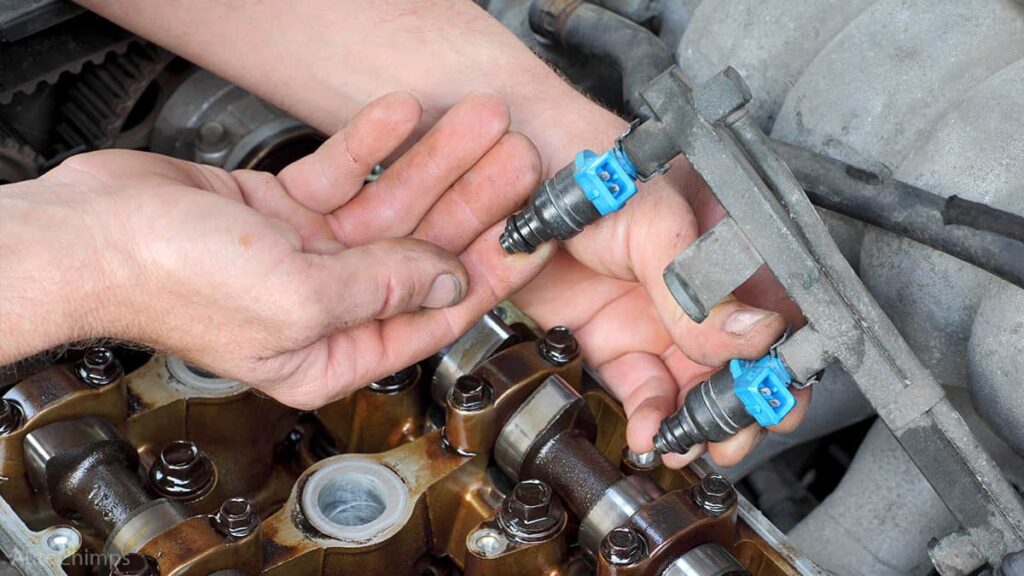
Fuel injectors spray fuel into the combustion chamber to mix with air and create the combustion necessary to power the engine. If the fuel injectors are dirty, clogged, or malfunctioning, they can cause the engine to run rich or lean, resulting in RPM fluctuations, poor acceleration, and engine misfires. Regular maintenance and cleaning of the fuel injectors can help prevent malfunctions.
#5 Fuel pump malfunction
The fuel pump delivers fuel from the gas tank to the engine. If the fuel pump is malfunctioning, it can cause the engine to receive too little or too much fuel, resulting in RPM fluctuations, poor acceleration, and engine misfires. A professional mechanic can diagnose and replace a faulty fuel pump.
#6 Faulty spark plugs
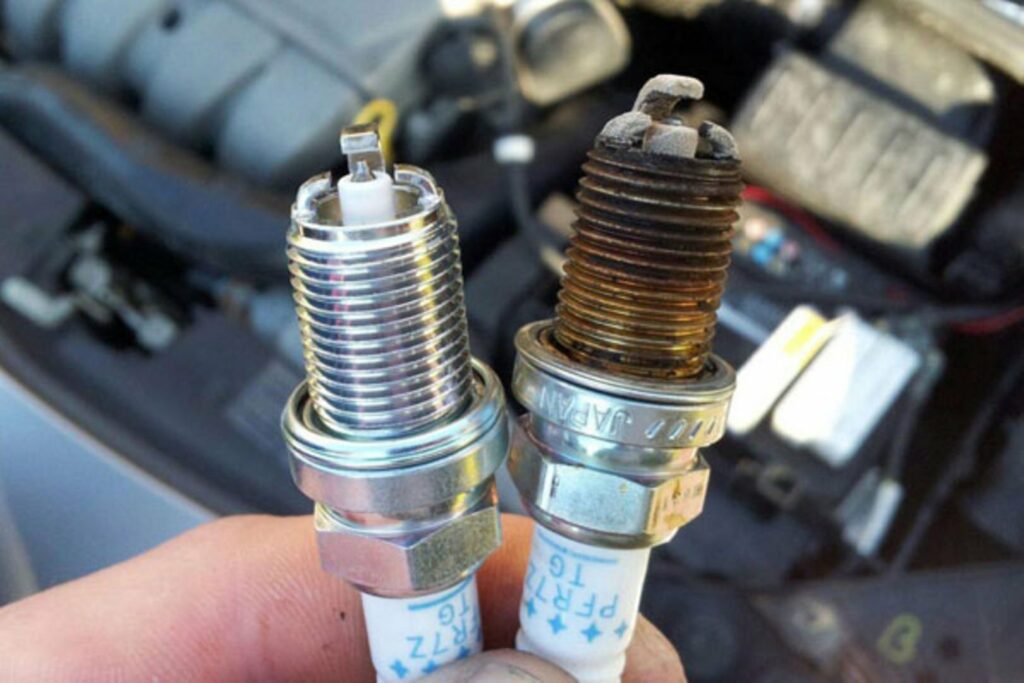
Spark plugs ignite the fuel/air mixture in the combustion chamber to create the combustion necessary to power the engine. If the spark plugs are faulty, they can cause misfires, resulting in RPM fluctuations and poor acceleration. Regular maintenance and replacing the spark plugs at recommended intervals can help prevent issues.
#7 Faulty mass airflow sensor
The mass airflow sensor measures the air coming into the engine and adjusts the fuel injection accordingly. If the mass airflow sensor is faulty, it can cause the engine to receive incorrect readings, leading to RPM fluctuations, poor acceleration, and engine misfires. A professional mechanic can diagnose and replace a faulty mass airflow sensor.
#8 Faulty throttle position sensor
The throttle position sensor measures the position of the throttle and sends this information to the engine control module to adjust the air/fuel mixture accordingly. If the throttle position sensor is faulty, it can cause the engine to receive incorrect readings, leading to RPM fluctuations, poor acceleration, and engine misfires. A professional mechanic can diagnose and replace a faulty throttle position sensor.
What To Do When RPM Goes Up And Down While Parked?
If your RPM is fluctuating during idle, it is a sign that an underlying issue needs to be addressed. Here are some steps you can take to troubleshoot and fix the problem:
- Check for vacuum leaks: Vacuum leaks can cause RPM fluctuations, so check all vacuum lines and hoses for cracks or leaks. You can use a vacuum gauge or smoke machine to identify the source of the leak.
- Clean the throttle body: A dirty throttle body can cause RPM fluctuations, so use a throttle body cleaner to remove any dirt or debris build-up. Be sure to disconnect the battery before cleaning to avoid damaging any electronic components.
- Check the idle air control valve: The idle air control valve controls the airflow into the engine during idle. If it is dirty or malfunctioning, it can cause RPM fluctuations. Clean or replace the valve as needed.
- Check the mass airflow sensor: A faulty mass airflow sensor can cause RPM fluctuations. Check the sensor for dirt or damage and clean or replace it as needed.
- Check the spark plugs: Faulty spark plugs can cause misfires, which can lead to RPM fluctuations. Check the spark plugs for wear and replace them if necessary.
- Check the fuel pump and filter: A malfunctioning fuel pump or dirty fuel filter can cause RPM fluctuations. Check the fuel pressure and replace the filter or pump as needed.
FAQs
What causes RPM fluctuations?
RPM fluctuations can be caused by a variety of issues, including vacuum leaks, malfunctioning sensors, dirty fuel injectors, faulty spark plugs, and more.
Can RPM fluctuations damage my engine?
Yes, RPM fluctuations can cause damage to your engine over time. Ignoring the problem can lead to decreased fuel efficiency, engine misfires, and other issues.
Can I drive my vehicle if the RPM is fluctuating?
It is not recommended to drive your vehicle if the RPM is fluctuating. Ignoring the problem can lead to more serious engine problems and decreased fuel efficiency. It’s best to address the issue as soon as possible.
How can I prevent RPM fluctuations?
Regular maintenance and cleaning of your vehicle’s components can help prevent RPM fluctuations. Using high-quality parts and avoiding harsh driving conditions can also help prolong the life of your vehicle’s components.
Can I fix RPM fluctuations myself?
Some minor causes of RPM fluctuations, such as a dirty throttle body, can be fixed yourself. However, more complex issues, such as malfunctioning sensors or fuel pump malfunctions, may require professional diagnosis and repair. It’s best to consult with a professional mechanic to diagnose and fix the problem properly.
Conclusion
In conclusion, RPM fluctuations during idle can be caused by various underlying issues that must be addressed promptly. Ignoring the problem can lead to more serious engine issues and decreased fuel efficiency. Regular maintenance and cleaning of your vehicle’s components can help prevent RPM fluctuations.
However, if the issue persists, it’s best to consult with a professional mechanic to diagnose and fix the problem properly. By addressing RPM fluctuations, you can help prolong the life of your vehicle’s components and ensure its optimal performance.

